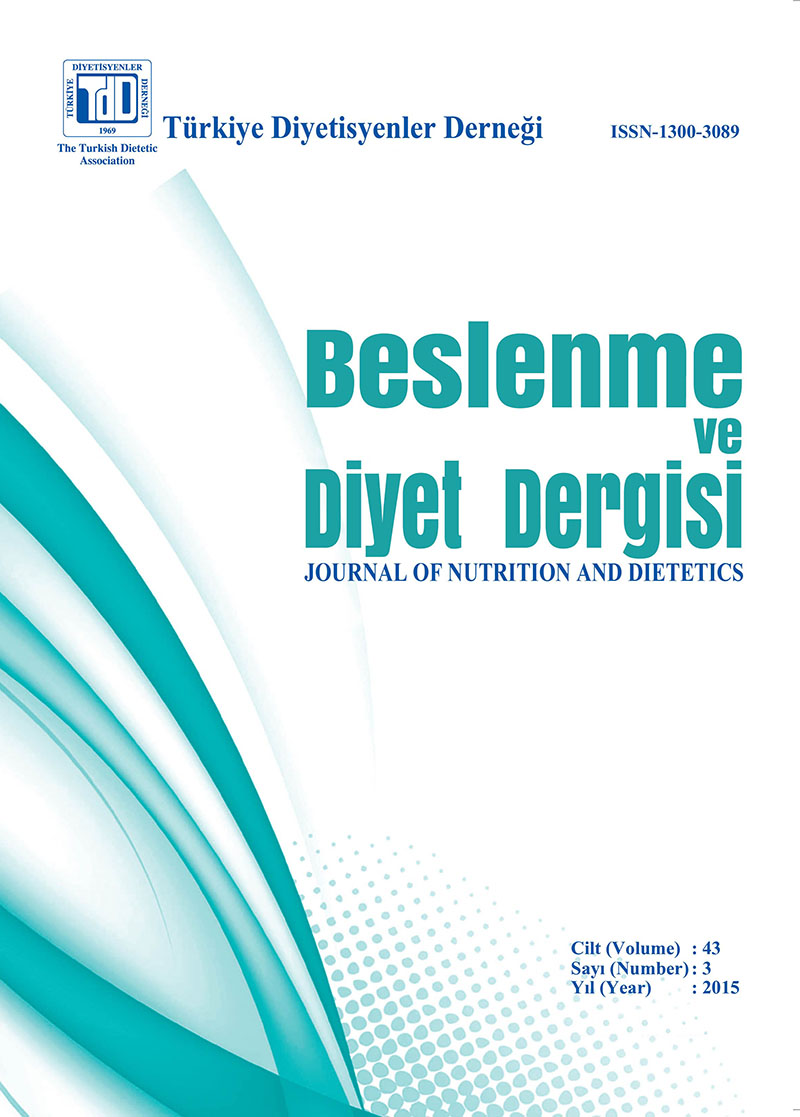Contribution of Food Groups to Dietary Energy and Macronutrient Intake in Type 2 Diabetic Patients
Keywords:
Type 2 diabetes, macronutrients, food groupsAbstract
Aim: The aim of the present study was to investigate the contribution of food groups to dietary energy and macronutrient intake in type 2 diabetic patients. Subjects and Methods: A total of 81 subjects (39 males and 41 females) with a mean age of 55.4±7.4 years were recruited in the study at the Gülhane Military Medicine Academy, Endocrinology and Metabolism Department, Diabetes Mellitus Outpatient Clinic. All the subjects were diagnosed with type 2 diabetes at least 1 year prior to the recruitment. A questionnaire form which included general characteristics questions, anthropometric measurements and a 24 hour dietary recall was administered by the researchers via face to face interviews. After dietary recall data were analyzed, the contribution of food groups to dietary energy and macronutrient intakes were calculated. Results: The results revealed that, according to WHO-BMI classification, 85.2% of the subjects were overweight. The bread and cereals group contributed most to the dietary energy, protein and carbohydrate intake while oils, dairy and nuts contributed most to the dietary fat intake respectively. Conclusion: Increasing the consumption of legumes and therefore increasing dietary fibre intake and decreasing glycemic index might help to manage glycemic control. Furthermore, increasing fish consumption might reduce the risk of cardiovascular diseases in type 2 diabetes by contributing to dietary protein and polyunsaturated fatty acid intakes.

